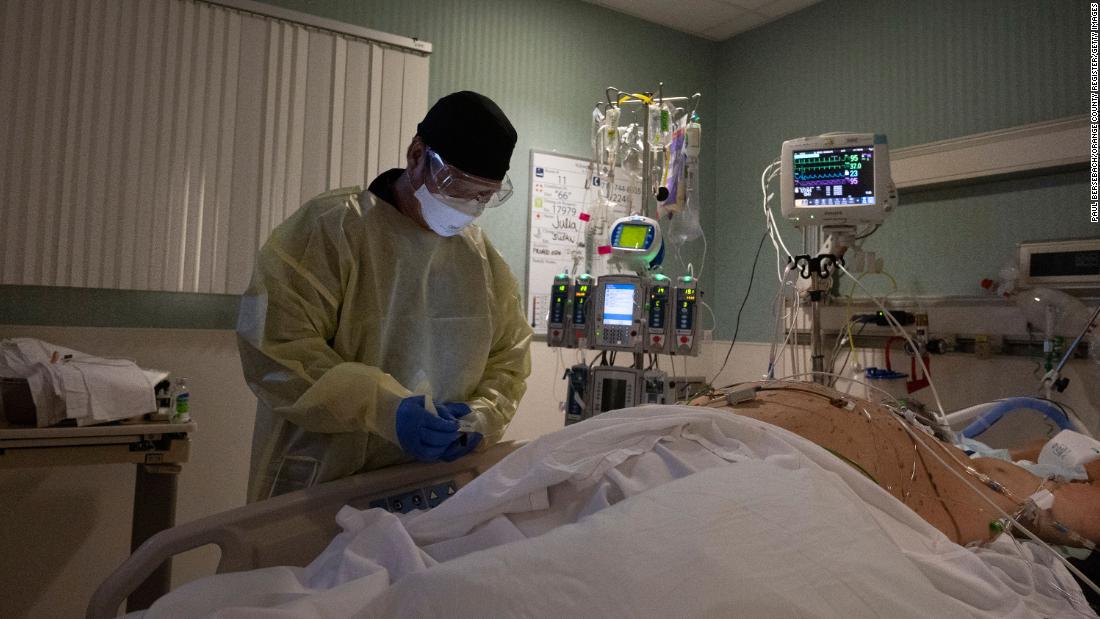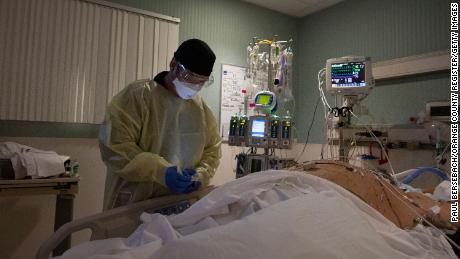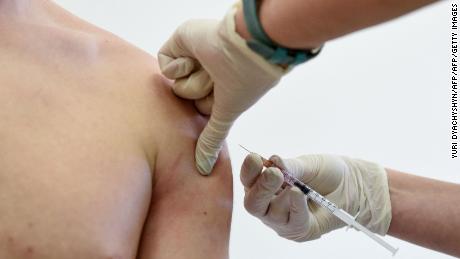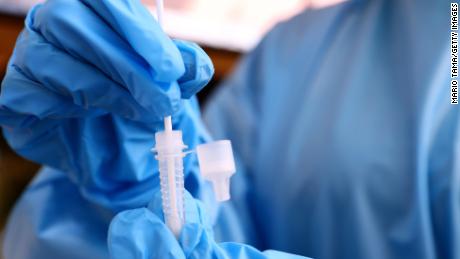The rise in US Covid-19 hospitalizations is a self-inflicted wound, expert says
“This is a self-inflicted wound, because we can prevent all of those hospitalizations and deaths — or at least 98, 99% of them — if we can encourage vaccination,” Dr. Peter Hoztez, a vaccinologist and dean of the National School of Tropical Medicine at Baylor College of Medicine, told CNN’s Jim Acosta on Thursday.
Only 48.8% of the US population is fully vaccinated, and the seven-day average pace is around 252,000. The average hasn’t been above 500,000 fully vaccinated people per day since July 5, according to CDC data.
“We’re all thinking that another surge is likely,” said UC Davis Medical Center Director of Critical Care Christian Sandrock said in a statement Thursday. “It is frightening. I don’t think we’ll go back to the worst we’ve seen, due to the vaccine, but it’s hard to tell.”
UC Davis epidemiology professor Lorena Garcia said the impact could be extremely devastating on rural communities with lower vaccination rates and limited access to care.
In Missouri, additional personnel and equipment are being sent to Springfield and Greene County to support the local healthcare system, Missouri Governor Mike Parson announced Thursday.
Some regions are returning to masks in hopes of slowing the spread.
In Texas, Harris County Judge Lina Hidalgo warned that the region is “at the beginning of a potentially very dangerous fourth wave of this pandemic” and raised the threat level from yellow to orange, urging community members to wear masks.
“So, I know they’re uncomfortable, I don’t like wearing masks either, but until we get the numbers back down, let’s all wear masks again,” said the judge of the county that includes Houston.
The CDC still recommends that unvaccinated people wear masks, but the choice is up to the individual if they are vaccinated, Director Dr. Rochelle Walensky said Thursday.
“If you are vaccinated, you get exceptional protection from the vaccines, but you have the opportunity to make the personal choice to add extra layers of protection if you so choose,” she said.
Experts express concern even for vaccinated Americans
Experts are warning that even people who are vaccinated need to be concerned about the surge.
Come the drier, colder weather of the fall and winter, transmission rates might go up even more, Gupta added.
“So, this could be as good as it gets at least for a period of time,” he said.
For people who are vaccinated, their immune system is much better equipped to protect them against the virus, but it is not perfect, Gupta said. Some might not get symptoms if they are infected, but some might end up being protected from hospitalization and still get sick, he said.
Wen compared vaccination to wearing a seatbelt: it is a crucial layer of protection, but it is not foolproof against the reckless behavior of others.
“But saying that doesn’t mean undermining confidence in seatbelts, it just saying that the choices that other people are making influence us too,” Wen said.
Vaccine effectiveness against Delta
Walensky said Thursday that the Delta variant is an “aggressive and much more transmissible” strain of the virus.
It is one of the most infectious respiratory viruses we know of, and I have seen in my 20-year career,” Walensky said at a White House COVID-19 Response Team briefing.
The spread of the variant makes vaccination even more important, Walensky said.
“If you are not vaccinated, please take the Delta variant seriously. This virus has no incentive to let up, and it remains in search of the next vulnerable person to infect,” she said.
According to CDC data released earlier this week, the Delta variant represents an estimated 83% of all coronavirus samples sequenced in the last two weeks. The good news is data shows vaccines are working as they did in clinical trials against the variant, Walensky said.
The Los Angeles County health director called the Delta variant a “game-changer,” as about 20% of the approximately 4,000 new cases reported in the country in June were among fully vaccinated people.
Most people who were vaccinated experienced only mild symptoms, Health Director Barbara Ferrer explained.
While cases are also rising among vaccinated people, the increase is much smaller and much slower than it is in unvaccinated people, Ferrer said, adding that unvaccinated people face more than five times the risk of vaccinated people.
She said the county’s case rate would be higher were it not for the number of vaccinated residents.
CNN’s Sarah Moon, Raja Razek, Carma Hassan, Virginia Langmaid and Cheri Mossburg contributed to this report.
![]()








